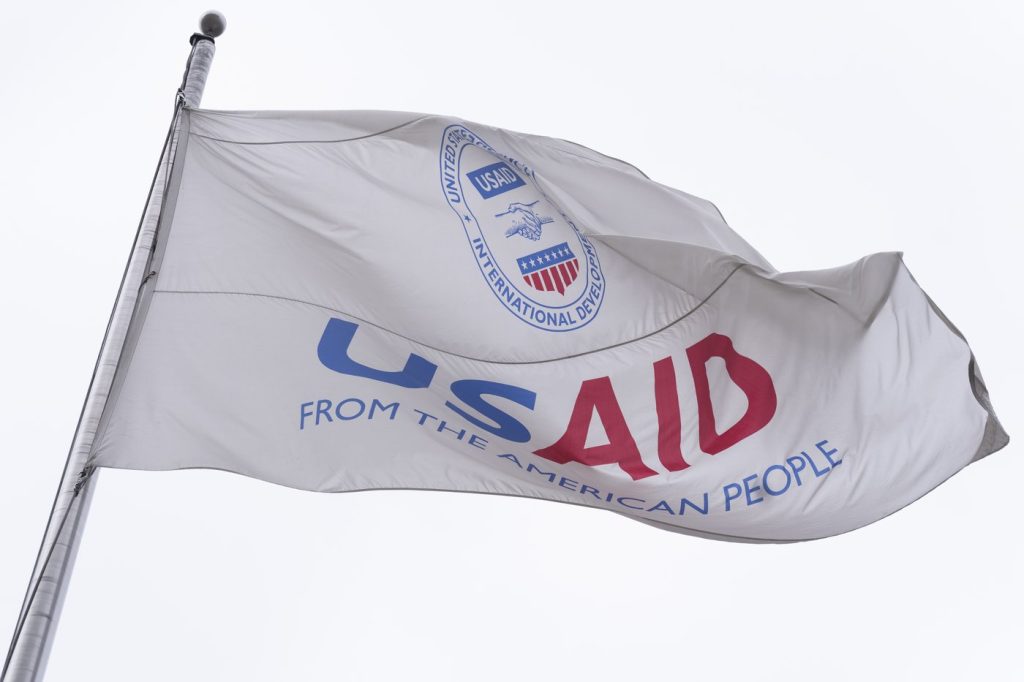On Wednesday, U.S. aid workers around the globe faced uncertainty and potential relocation as a sudden order from the Trump administration ordered the near-complete withdrawal of staff from the U.S. Agency for International Development (USAID). This unexpected directive forced many employees to begin packing their households and withdraw their children from school, raising questions about job security and the implications for ongoing aid programs.
In Washington, Democratic lawmakers rallied to oppose the dismantling of USAID, an independent government agency established more than sixty years ago. The agency has become a target for budget cuts proposed by the Trump administration and Elon Musk's budget team, who argue that certain federal programs are wasteful and misaligned with a conservative agenda. Consequently, USAID has been severely impacted, with emergency town halls being held by embassies in over 100 countries to provide updates to concerned staff members.
On the ground, many staffers and contractors expressed fears over their safety, especially those in volatile regions like the Middle East. One contractor described feeling isolated and endangered after losing access to government email and emergency systems, stating, "You really do feel cut off from a lifeline." As staffers grappled with their imminent departure, they voiced concerns over the lack of communication from Washington about their employment status and next steps.
The abrupt order affecting USAID staff led to a freeze in agency spending and a significant impact on humanitarian projects worldwide. The mass relocation of personnel could jeopardize billions of dollars worth of initiatives in around 120 countries, including programs focused on security assistance for Ukraine and critical health services in regions like Afghanistan and sub-Saharan Africa. A contractor in the Middle East noted that their family faced immediate dangers without the necessary government support amid the shutdown.
On Tuesday night, the notice announced that direct hires would have 30 days to return home, while contractors would be released from their positions. This decision follows previous layoffs and program shutdowns initiated by the Trump administration, which has heavily scrutinized USAID as part of a wider effort to reduce government expenditure. Hundreds of millions of dollars' worth of medical supplies and food have been left idle in ports due to the funding cessation.
The disruption has also halted crucial health initiatives renowned for their success in combating diseases like polio and HIV/AIDS, with programs credited for saving millions of lives suddenly at risk. South African Health Minister Aaron Motsoaledi expressed alarm over the sudden freeze in critical funding for their national HIV/AIDS program, which heavily relies on U.S. support.
Democratic leaders voiced their concerns over the legality of the administration's actions, emphasizing that USAID's status as an independent agency can only be altered with congressional approval. Proponents of the agency believe that its work is vital in countering the influence of adversaries like Russia and China and maintaining strong international partnerships. With demonstrations occurring across various locations, lawmakers aimed to safeguard the future of USAID amidst growing tensions.
The potential fallout from the order could result in tens of millions of dollars in costs related to the rapid relocation of staff and their families, with the American Foreign Service Association hinting at possible legal actions against the directive. Local USAID staff, in particular, face significant hurdles as they lack the same legal protections granted to direct hires and civil service officers. As families began making the painful decision to uproot their lives, many were left scrambling to secure arrangements for pets and educational continuity for their children.
As Secretary of State Marco Rubio undertook a tour of Central America and engaged with embassy staff, he reiterated the administration's position on foreign aid as a means to further U.S. national interests. The consequences of this unexpected order resonate not only within the U.S. government but also across the global landscape of humanitarian aid and development efforts, putting countless lives at stake. The situation remains fluid as critical decisions must be made in the coming days about the path forward for USAID and its dedicated personnel.











